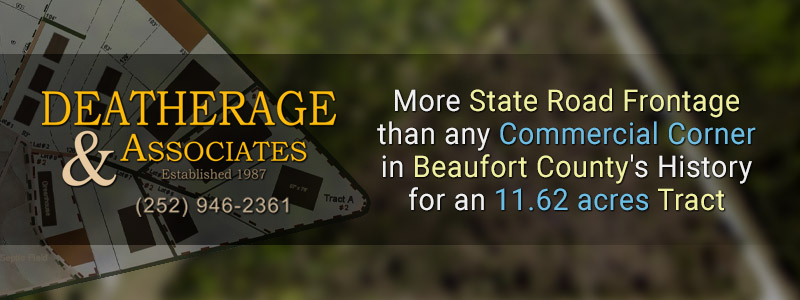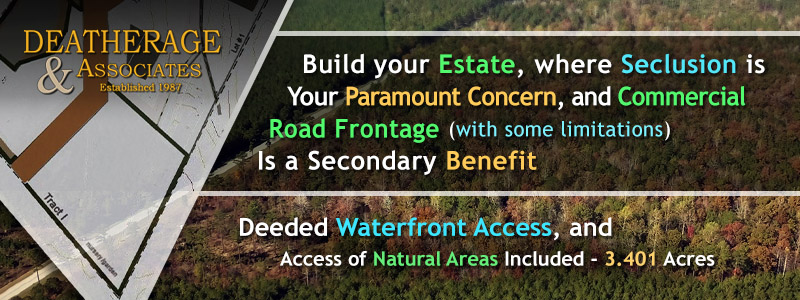The Shell Game of Corrupted Government Exposed
Is the "Whole Child Model" About Education or Control?
Publisher's note: This post was originally published in Civitas's online edition.
I tried to pay attention as the itinerant school nurse gave me the tutorial. After all, I might have to react quickly should this little boy in my class have a medical emergency. I just kept thinking, though, that this all seemed surreal because she was teaching me how to insert a suppository in case this child had a certain type of seizure. There are already commonly accepted duties in a teacher's day that echo those of a social worker, nurse, psychologist, and parent figure; the evidence on the horizon is that those types of duties may eventually overshadow the more traditional ones connected with academic instruction.
In order to better coordinate services for children, the North Carolina State Board of Education has adopted the Whole School, Whole Community, Whole Child Model (WSCC), explained on nchealthyschools.org. This model is based on one developed by the Centers for Disease Control and Prevention and the educational agency ASCD (American Society for Curriculum Development). The goals of this model, while sounding supportive in coordinating total health for children, also support school responsibility and control over areas of student health traditionally assumed by families. Sadly, there are far too many examples in recent news that highlight what can happen when government at any level supplants parental authority. So, my skepticism of WSCC is not unfounded.
WSCC is comprised of nine categories. Three of the categories - Nutrition, Physical Education, and Health Education - have long been woven into daily school activities and curriculum. WSCC has brought an expansion in North Carolina of the Sex Ed components, some of which may not be fully known to parents (for example, the website Teenplaybook.org). Four of the remaining categories (Community Involvement, Physical Environment, Family Engagement, and Employee Wellness) are categories where no one yet knows how these will be configured to guarantee positive results for "the whole child."
The two remaining categories for North Carolina's adopted model, however, are very concerning from a classroom teacher's view: Counseling, Psychological, Social Services and Social/Emotional Climate. Given the overwhelming emphasis on data collection over every aspect of academics, it is feasible that teachers may also be eventually required to collect and note students' emotional responses to their environment. Will teachers need to score students' levels of anger or frustration? Will referrals to local counseling become a mandate with or without parental consent? Most concerning, will a teacher's fidelity in tracking such data become part of his or her performance evaluation?
Caring and accomplished teachers have always been alert to the physical and emotional, as well as academic, health of their students. Over my 30-year career I had to report suspected child abuse. I regularly tested the blood and urine of a diabetic student. I took thousands of temperatures and applied at least that many band-aids. I spent time in the hall or on the playground counseling small human beings about making friends or being sad about a divorce or a pet's death. I often told parents at conferences that I considered that we had an 80-20 relationship of responsibility. I was responsible for 80 percent of the child's academics and 20 percent of the child's overall health, with the reverse being the family's responsibility. An appropriate level of respect for family values and privacy was part of my teacher training: the possible loss of that respectful balance makes the adoption of the huge and vague WSCC model all the more concerning.
No one knows the future ramifications of the WSCC model, but it has the capacity to open the door to new policies that would place teachers in the role of providing state government more control over students as well as contributing to a gradual undermining of parental controls and family privacy. Should teachers who are already overwhelmed with the academic end of data collection become accountable for monitoring and even reporting their students' total health needs? Do we want teachers and schools to replace a family responsibility to determine the physical and emotional health of a child? North Carolina needs to carefully monitor any applications of this comprehensive whole child model and begin to honestly address some of the troubling questions WSCC brings with it.
Go Back
I tried to pay attention as the itinerant school nurse gave me the tutorial. After all, I might have to react quickly should this little boy in my class have a medical emergency. I just kept thinking, though, that this all seemed surreal because she was teaching me how to insert a suppository in case this child had a certain type of seizure. There are already commonly accepted duties in a teacher's day that echo those of a social worker, nurse, psychologist, and parent figure; the evidence on the horizon is that those types of duties may eventually overshadow the more traditional ones connected with academic instruction.
In order to better coordinate services for children, the North Carolina State Board of Education has adopted the Whole School, Whole Community, Whole Child Model (WSCC), explained on nchealthyschools.org. This model is based on one developed by the Centers for Disease Control and Prevention and the educational agency ASCD (American Society for Curriculum Development). The goals of this model, while sounding supportive in coordinating total health for children, also support school responsibility and control over areas of student health traditionally assumed by families. Sadly, there are far too many examples in recent news that highlight what can happen when government at any level supplants parental authority. So, my skepticism of WSCC is not unfounded.
WSCC is comprised of nine categories. Three of the categories - Nutrition, Physical Education, and Health Education - have long been woven into daily school activities and curriculum. WSCC has brought an expansion in North Carolina of the Sex Ed components, some of which may not be fully known to parents (for example, the website Teenplaybook.org). Four of the remaining categories (Community Involvement, Physical Environment, Family Engagement, and Employee Wellness) are categories where no one yet knows how these will be configured to guarantee positive results for "the whole child."
The two remaining categories for North Carolina's adopted model, however, are very concerning from a classroom teacher's view: Counseling, Psychological, Social Services and Social/Emotional Climate. Given the overwhelming emphasis on data collection over every aspect of academics, it is feasible that teachers may also be eventually required to collect and note students' emotional responses to their environment. Will teachers need to score students' levels of anger or frustration? Will referrals to local counseling become a mandate with or without parental consent? Most concerning, will a teacher's fidelity in tracking such data become part of his or her performance evaluation?
Caring and accomplished teachers have always been alert to the physical and emotional, as well as academic, health of their students. Over my 30-year career I had to report suspected child abuse. I regularly tested the blood and urine of a diabetic student. I took thousands of temperatures and applied at least that many band-aids. I spent time in the hall or on the playground counseling small human beings about making friends or being sad about a divorce or a pet's death. I often told parents at conferences that I considered that we had an 80-20 relationship of responsibility. I was responsible for 80 percent of the child's academics and 20 percent of the child's overall health, with the reverse being the family's responsibility. An appropriate level of respect for family values and privacy was part of my teacher training: the possible loss of that respectful balance makes the adoption of the huge and vague WSCC model all the more concerning.
No one knows the future ramifications of the WSCC model, but it has the capacity to open the door to new policies that would place teachers in the role of providing state government more control over students as well as contributing to a gradual undermining of parental controls and family privacy. Should teachers who are already overwhelmed with the academic end of data collection become accountable for monitoring and even reporting their students' total health needs? Do we want teachers and schools to replace a family responsibility to determine the physical and emotional health of a child? North Carolina needs to carefully monitor any applications of this comprehensive whole child model and begin to honestly address some of the troubling questions WSCC brings with it.
| Bill Forcing Government Agencies to List all Crimes on the Books Moves Forward | Civitas Institute, Editorials, Op-Ed & Politics | Cooper Office Statement on the GOP Budget |
Latest Op-Ed & Politics
|
how many of these will come to North Carolina?
Published: Tuesday, April 23rd, 2024 @ 1:32 pm
By: John Steed
|
|
Barr had previously said he would jump off a bridge before supporting Trump
Published: Tuesday, April 23rd, 2024 @ 11:37 am
By: John Steed
|
|
Babis is leader of opposition in Czech parliament
Published: Tuesday, April 23rd, 2024 @ 10:28 am
By: John Steed
|
|
illegal alien "asylum seeker" migrants are a crime wave on both sides of the Atlantic
Published: Tuesday, April 23rd, 2024 @ 9:44 am
By: John Steed
|
|
only one holdout against acquital
Published: Tuesday, April 23rd, 2024 @ 9:01 am
By: John Steed
|
|
DEI now includes criminals?
Published: Monday, April 22nd, 2024 @ 8:33 pm
By: John Steed
|
|
Biden regime intends to force public school compliance as well as colleges
Published: Monday, April 22nd, 2024 @ 1:55 pm
By: John Steed
|
|
clamps down on oil drilling in Alaska
Published: Monday, April 22nd, 2024 @ 9:09 am
By: John Steed
|
|
plan put in place by Eric Holder
Published: Monday, April 22nd, 2024 @ 7:38 am
By: John Steed
|
|
prosecutors appeal acquittal of member of parliament in lower court for posting Bible verse
Published: Sunday, April 21st, 2024 @ 9:14 am
By: John Steed
|
|
Biden abuses power to turn statute on its head; womens groups to sue
Published: Friday, April 19th, 2024 @ 8:28 pm
By: John Steed
|
|
The Missouri Senate approved a constitutional amendment to ban non-U.S. citizens from voting and also ban ranked-choice voting.
Published: Friday, April 19th, 2024 @ 12:33 pm
By: Daily Wire
|
|
Democrats prosecuting political opponets just like foreign dictrators do
Published: Friday, April 19th, 2024 @ 10:58 am
By: John Steed
|
|
populist / nationalist / sovereigntist right are kingmakers for new government
Published: Friday, April 19th, 2024 @ 10:04 am
By: John Steed
|
|
18 year old boy who thinks he is girl planned to shoot up elementary school in Maryland
Published: Friday, April 19th, 2024 @ 8:46 am
By: John Steed
|
|
Biden assault on democracy continues to build as he ramps up dictatorship
Published: Friday, April 19th, 2024 @ 8:26 am
By: John Steed
|























